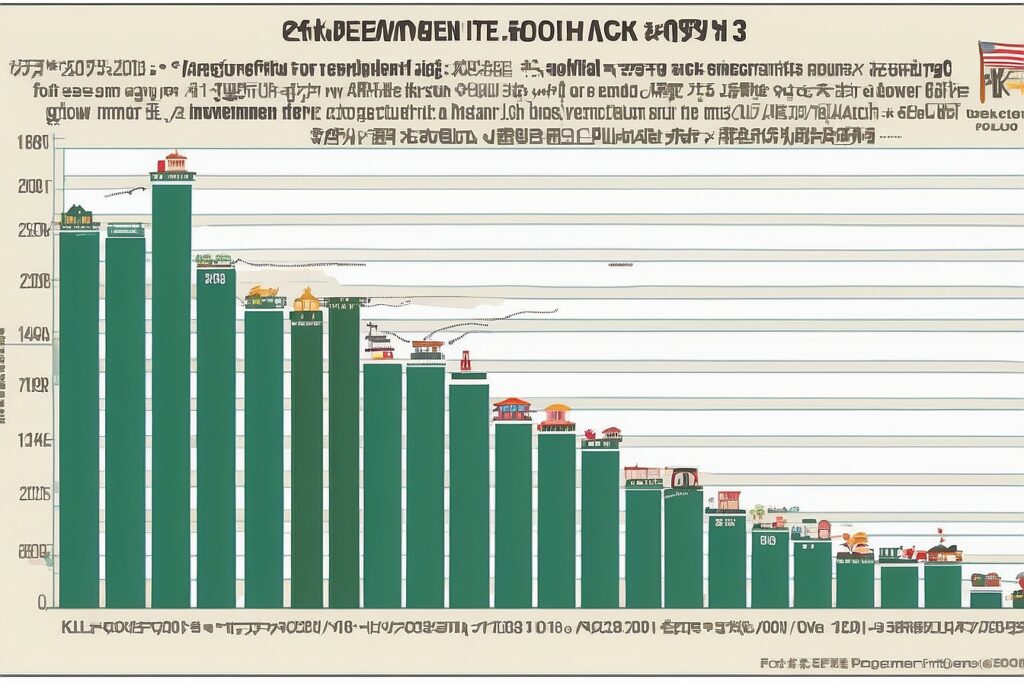New research conducted by international property consultant Colliers reveals a decline in annual total investment in South Korean hotels, dropping from KRW 5.8 trillion in 2021 to KRW 5.5 trillion in 2022.
This marks a notable decrease from the previous average level of KRW 2 trillion per year. In 2022, hotel assets constituted over 10% of the total commercial real estate investment.
The surge in hotel investment is not primarily driven by the pursuit of hotel operation income. Instead, investors are focusing on securing redevelopment profits by leveraging prime locations and floor area ratios.
Notably, hotel sites in Gangnam district have garnered significant attention among developers aiming to transform them into high-end officetels (studio apartments).
As construction companies and developers encounter challenges in finding new development sites for offices or residential facilities in downtown Seoul, they have increasingly turned to purchasing existing hotel sites as an alternative strategy.

Decrease in Hotel Investment Activities in 2023
In 2023, the South Korean hotel investment landscape witnessed a notable downturn, primarily attributed to rising interest rates and development costs, as highlighted by Colliers. These factors have significantly constrained hotel investment activities among existing investors in the sector.
In response to the prevailing economic conditions, conservative investors have strategically redirected their investment preferences towards stable office markets exhibiting consistent performance.
Consequently, there has been a noticeable decline in the inclination towards hotel conversion investments, which typically entail substantial development costs.
The shift away from hotel conversion investments has had a tangible impact on the overall hotel investment activities in South Korea. In 2022, hotel investments represented a significant portion, accounting for 10% of the total commercial real estate investment in the country.
However, by 2023, this proportion experienced a notable decline, plummeting to 6%. This downturn underscores the challenges faced by investors in the hotel sector amidst the changing economic landscape.
The decision of conservative investors to prioritize stable office markets over hotel conversion investments reflects a strategic response to mitigate risks associated with escalating development costs and fluctuating interest rates. Stable office markets offer a sense of security and predictability, which aligns with the risk-averse investment approach adopted by conservative investors amid uncertain economic conditions.
This shift in investment preference towards office markets underscores the need for adaptability and flexibility in navigating the evolving real estate landscape.
Furthermore, the decrease in hotel investment activities underscores the importance of conducting thorough risk assessments and cost-benefit analyses before committing to investment decisions in the hospitality sector.
The heightened development costs associated with hotel conversion projects pose challenges for investors, necessitating a reevaluation of investment strategies and priorities.
Despite the decline in hotel investment activities, it is essential to recognize the resilience and potential of the South Korean real estate market. While certain sectors may experience temporary setbacks, the overall market continues to offer opportunities for growth and diversification.
Investors are encouraged to remain vigilant and proactive in identifying emerging trends and market dynamics to capitalize on lucrative investment opportunities.
In conclusion, the decline in hotel investment activities in South Korea in 2023 reflects the impact of rising interest rates and development costs on investor sentiment and decision-making.
Conservative investors have shifted their focus towards stable office markets, leading to a decrease in the preference for hotel conversion investments.
However, amidst these challenges, the real estate market continues to evolve, presenting opportunities for strategic investment and growth.
By staying informed and adaptable, investors can navigate the changing landscape and position themselves for long-term success in the South Korean real estate sector.
Transaction of 5-Star Hotel Trophy Assets
The largest transaction in 2023 involved the acquisition of the Millennium Seoul Hilton hotel, valued at KRW 1.1 trillion, by the IGIS Asset Management and Hyundai Construction Consortium.
This consortium intends to undertake a redevelopment project, transforming the property into a combination of office and hotel space.
Following closely, the Grand Hyatt Seoul Hotel, another iconic 5-star establishment, was acquired by Blue Cove Asset Management from Inmark Asset Management for KRW 700 billion.
Both hotels hold significant historical and architectural value, representing prime-grade properties within the Korean hospitality sector.
Additionally, there are plans for a partial sale of the Conrad Seoul, situated in the IFC building in Yeouido Business District (YBD), by Brookfield Asset Management.
If finalized, this transaction is anticipated to be valued at approximately KRW 400 billion. These developments underscore the continued activity within the Korean hotel investment market, with notable transactions contributing to the evolving landscape of luxury hospitality properties in the region.
Hotel Property Transformation through Transactions
In the last couple of years, there has been notable investment activity in hotel assets, with investors acquiring struggling properties affected by the Covid-19 pandemic. However, the landscape has shifted due to rising interest rates and construction costs, resulting in a decline in interest in residential redevelopment projects.
A new trend is emerging, with a growing preference for converting hotels into office spaces. This shift is fueled by several factors, including limited supply, strong demand, and a stable market environment. For instance, the Tmark Hotel Myeongdong is set to undergo a transformation into a 15-story office building, expected to be available by 2024.
Similarly, the New Kukje Hotel, located near Gwanghwamun Station, is slated for renovation into an office building by the fourth quarter of 2024. These conversions signify a strategic response to the evolving market dynamics, capitalizing on the demand for office spaces in key locations.
Furthermore, real estate developer Tmark is in the process of acquiring the Glad Live Hotel in Nonhyeon-dong, currently owned by DL Group. The plan is to remodel this property into office space, further contributing to the growing trend of repurposing hotel assets for commercial use.
Upscale Officetels on the Rise
There has been a notable rise in the supply of high-end officetels, luxury residential complexes that offer hotel-grade services. These facilities boast a range of amenities, including 24-hour valet parking, car washing, laundry, and housekeeping, akin to those found in hotels.
The surge in demand for residential properties in the Gangnam area, coupled with the scarcity of available land due to soaring prices, has led to increased interest in residential development and repurposing, particularly focused on high-end officetels.
Revised: “Shift in Investment Strategy”
Rising land prices in Gangnam have spurred developers to acquire hotels with plans to transform them into upscale officetels and luxurious residential properties.
However, challenges such as increasing development costs and difficulties in obtaining permits have hindered construction progress, despite securing prime locations.
While affluent individuals possess the financial means to invest in hotel assets, diminishing expectations regarding value appreciation have dampened demand.
In response to these challenges, some developers have pivoted their strategies towards developing larger luxury residences or repurposing properties into office spaces. The forthcoming upscale residences are anticipated to be concentrated in the Cheongdamdong area, particularly along Dosan-daero street.
Given the existing landscape of development sites and land values in Gangnam, the current decline in interest in high-end officetels may lead to stable cash flows in the future if the real estate market experiences an upturn. Consequently, once the property finance market stabilizes, projects involving the redevelopment of dormant hotel sites may see fruition.
Foreign Tourism Rebound Expected
The Korean hotel industry, largely reliant on foreign tourism, faced severe setbacks due to the COVID-19 pandemic. With a significant drop in tourist arrivals, hotels experienced substantial declines in occupancy and revenue.
The number of foreign visitors, particularly from key markets like China, serves as a vital metric for hotel demand in Korea. Prior to the pandemic, Chinese tourism accounted for a substantial portion of inbound travel to Korea. However, the numbers plummeted dramatically during the pandemic, with a notable decrease from 6.02 million visitors in 2019 to only 170,000 in 2021.
While there has been a gradual uptick in Chinese tourist arrivals post-pandemic, the recovery trajectory remains modest. Projections indicate that the number of Chinese tourists is expected to reach 1.76 million by 2023, reflecting a fraction of pre-pandemic levels. As a result, the hotel industry is still in the process of navigating a full-scale recovery.
The cautious investment sentiment prevailing in the first half of 2024 can be attributed to several factors, including rising interest rates and delayed investment decisions. These factors have led to a conservative approach among investors, impacting investment activity within the hotel sector.
However, as tourist numbers gradually rebound and hotel operators witness improvements in profitability, there is optimism for a resurgence in investor sentiment. Colliers reports that an increasing number of long-term investors are reevaluating and considering investments in hotels, anticipating a gradual recovery in the sector.




I don’t think the title of your article matches the content lol. Just kidding, mainly because I had some doubts after reading the article.